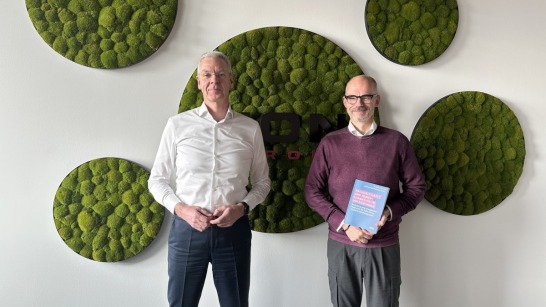The switch to electric: Less noise, fewer exhaust fumes
Its morning and cargo handlers and forklift operators are waiting at the loading dock in front of the warehouse, looking out at the rain and drinking tea. Every so often, a shipper drops off a few items. After lunch, things begin picking up and by late afternoon and evening, trucks are arriving every minute. The cargo handlers load huge piles of cardboard boxes onto uniform pallets. Electric forklifts and pallet trucks zip around each other in what appears to be a haphazard fashion. It is, in fact, a highly precise operation.
2017-03-01
_image_519x291.jpg)
_image_519x291.jpg)
_image_767x563.jpg)
_image_767x563.jpg)
_image_767x563.jpg)
_image_767x563.jpg)
_image_767x563.jpg)
_image_767x563.jpg)
_image_767x563.jpg)
_image_546x307.jpg)
